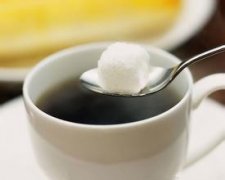Coffee beans Mantenin Coffee introduction characteristics, Origin and History

Brief introduction and Origin of Mantening Coffee
Manning Coffee is produced in Sumatra, Indonesia, Asia, also known as "Sumatran Coffee". Her flavor is very rich, sweet, pure bitter, mellow, with a little sweet and slightly sour, with a long aftertaste and aftertaste. Most coffee lovers drink on their own, but it is also an indispensable variety for blending coffee.
Manning Coffee
Manning: the palate is rich and solid, with a pleasant sour taste. The smell is mellow, the acidity is moderate, the sweetness is rich and very intriguing, it is suitable for deep baking and exudes a strong aroma.
The Gentleman in Coffee-- Sumatra Manning
Mantenin is a first-class coffee bean growing in the plateau and mountain area at an altitude of 750-1500 meters, and the first-class mantenin produced by Takengon and Sidikalang is of the highest quality. Because of its irreplaceable mellow taste, UCC Ujima Coffee, the largest coffee company in Japan, partnered with PT Gunung Lintong, a famous coffee maker in Sumatra, to operate their first coffee plantation in Asia in 1995, which shows how important Mantenin is in the coffee field.
Manning shows a kind of masculinity, drinking a kind of happy, wanton, gallop scenery, this taste makes men fascinated, implying a kind of tenacity and can afford to let go of the great spirit.
Some people say that Mantenin is thick and strong, the Caesar in coffee, whose iron hoofs break into the ancient desolation and the distant horizon of the yellow sand; some people say that Mantenin is gentle and easygoing, and even the hardest-hearted man will willingly surrender to its tenderness. No matter how people describe it, men become great because of manning, women become charming because of manning, life is full of achievement and pride because of manning. The world is full of sunshine and love because of Manning. Perhaps this is just as life becomes great because of ideals, and life becomes extraordinary because of practice.
Manning has always expressed its most unique sweetness with the most unique bitterness, as if it were life. When we first taste it, we may be surprised, no matter how much sugar can not hide the bitter taste, but we can not help ourselves and crazy infatuated with its charming aroma, like thorns on the edge of flowers, sobering and conscious.
Manning's suffering will not upset you, but will make you feel more awake. Before you encounter real pain, Manning is just an ordinary drink with a bitter taste, a refreshing liquid, a tool to slow you down, and it can't feel your grievance yet. but there are many people who are madly infatuated with Mantenin's bitterness, as if they can't quit if they are poisoned. If you want to know why, they will smile and tell you: "because love is bitter."
The Origin of Manning
Manning is not the name of the producing area, the place name, the port name, nor the name of the coffee breed. How did its name come from?
In fact, it is a phonetic error of the mandheling people in Mandaining, Indonesia.
During the Japanese occupation of Indonesia during World War II, a Japanese soldier drank mellow coffee in a cafe, so he asked the shopkeeper the name of the coffee, and the boss mistook him for asking where you were from, so he replied: Mandaining. After the war, the Japanese soldiers recalled the "manning" they had drunk in Indonesia. As a result, 15 tons of Indonesian coffee was transported to Japan, which was very popular. That's how Manning's name came out, and the coffee merchant is now the famous PWN Coffee Company. Known as Mantenin mandheling, it is produced all over Lake Toba in northern Sumatra. The finished product has a unique fragrance of herbs and trees.
Golden Manning
More than a decade ago, the Japanese adopted more stringent quality control. After picking beans manually for four times, they removed defective beans and produced gold mantenin with dark green color and equal appearance of beans, creating another wave of market demand, which even Europe and the United States were crazy about. The aged Agedmandheling is as sweet as honey. The successful old bean has worn away Manning's inelegant sour taste. The sour ingredients are ripe and converted to sugar, making the coffee more round and sweeter to drink. Manning is like a coffee zombie in the old age of failure, and the taste is hard to taste.
Important Notice :
前街咖啡 FrontStreet Coffee has moved to new addredd:
FrontStreet Coffee Address: 315,Donghua East Road,GuangZhou
Tel:020 38364473
- Prev

Coffee Common sense Blue Mountain Coffee Why is it so Special
What makes Jamaican Blue Mountain Coffee so special? One might ask, what is so special about Jamaican Blue Mountain Coffee? The answer is everything about it. The most favorable planting conditions in the world Jamaica's weather, geological structure and topography together provide a unique ideal place. Designated Jamaican Blue Mountain Coffee can only be grown in the Blue Mountain area, east of the island of Jamaica in Kingston.
- Next

The wonderful use of Fine Coffee in Daily Life
*。 Coffee grounds are placed in an ashtray to remove the stench of smoke and make it easier to extinguish the stalk. *。 Having a cup of coffee when you are in low spirits can not only wake you up, smell the aroma of coffee, but also help you absorb about three times the amount of vitamin c in lemon. People who don't drink coffee can also try it. After eating food containing garlic, drink a cup of coffee to make your breath fresh and natural. *。 Put the coffee grounds
Related
- Beginners will see the "Coffee pull flower" guide!
- What is the difference between ice blog purified milk and ordinary milk coffee?
- Why is the Philippines the largest producer of crops in Liberia?
- For coffee extraction, should the fine powder be retained?
- How does extracted espresso fill pressed powder? How much strength does it take to press the powder?
- How to make jasmine cold extract coffee? Is the jasmine + latte good?
- Will this little toy really make the coffee taste better? How does Lily Drip affect coffee extraction?
- Will the action of slapping the filter cup also affect coffee extraction?
- What's the difference between powder-to-water ratio and powder-to-liquid ratio?
- What is the Ethiopian local species? What does it have to do with Heirloom native species?

